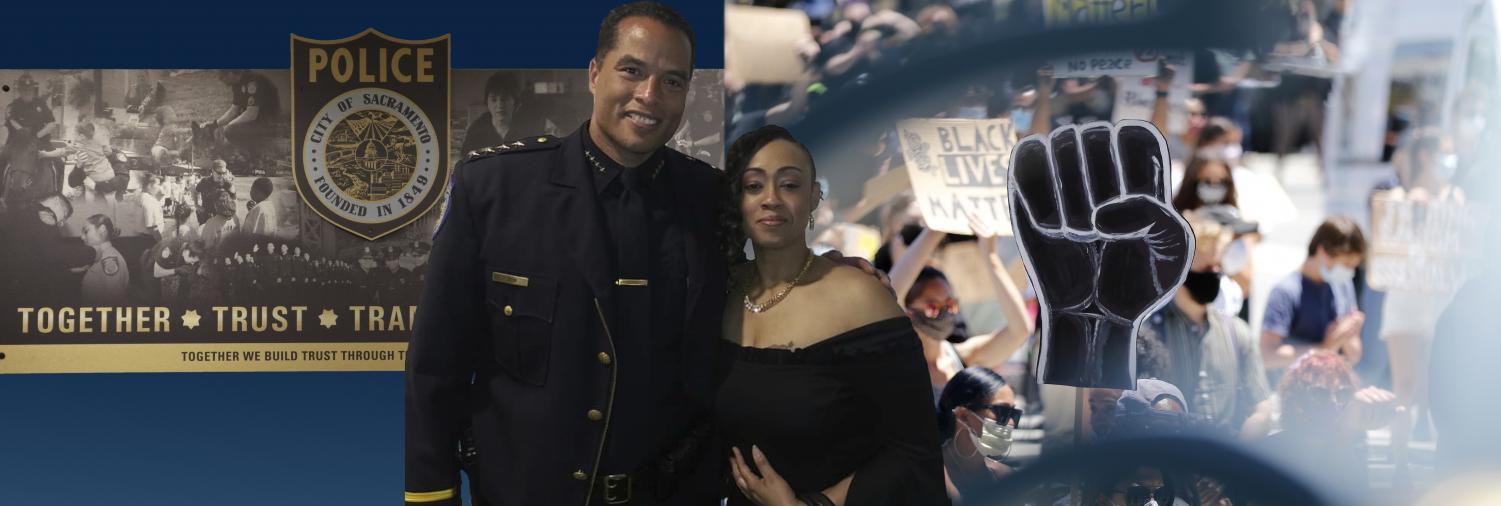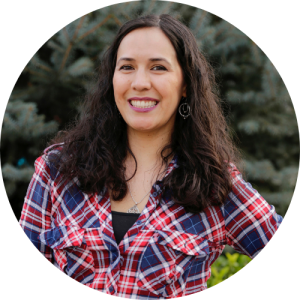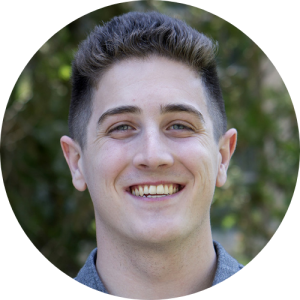Your donation will support the student journalists of Sacramento State University. Your contribution will allow us to purchase equipment and cover our annual website hosting costs.
FEATURE: Sacramento Police Chief and activist agree on step to reduce gun violence – education
December 19, 2020
Sacramento Police Chief Daniel Hahn and Jamilia Land to some may be unlikely friends, but that has not stopped Land from receiving criticism from the public for being friends with a police officer due to her line of work. Land, a self-described humanitarian, is a spokesperson for families like the family of Michael Wright who was shot and killed Nov. 4 by police officers.
Hahn and Land told The State Hornet education on gun violence is a step toward reducing gun-related deaths.
Although they both believe education is the key to help reduce gun violence, they differ on how the education should be delivered. Sacramento State alumnus Hahn said going to school and getting a degree helps reduce crime rates and build communities up. Land said the community and youth need to be educated on how to handle a gun to avoid situations like her 4-year-old nephew, who found a loaded gun at home and accidentally shot himself.
Jump to:
-
- Feature: Sacramento activist advocates for gun safety
- VIDEO Q&A: Daniel Hahn, Sacramento’s first Black police chief
- How can Sac State students work with law enforcement?
- Growing up in Oak Park.
- How is Sac PD reducing gun violence in our community?
- What policies to reduce gun violence would you implement?
- What do you think of defund the police movment?
- Improving the police’s standing in the community.
- Treatment of Black officers at protests.
VIDEO Q&A: Daniel Hahn, Sacramento’s first Black police chief
Sacramento Police Chief Daniel Hahn was raised in Oak Park and graduated from Sacramento State in 1995 with a degree in business administration. He said that the police force was not his original plan but the pay enticed him to apply. He joined Sacramento’s police department at 19 years old in 1987 and was the first Black police officer in Roseville in March 2011 and the first Black police chief in Sacramento in August 2017.
The State Hornet spoke with Hahn about gun violence, education and working with community organizations.
Question: Sac State is an integral part of our community here. What can we as students do to work with law enforcement to help reduce violence and crime within our community?
Q: In an interview you did with Two Cents, you stated that you had a lot of opportunities growing up as a child in Oak Park. What were some of those opportunities?
Q: How is Sac PD helping reduce instances of gun violence in our community?
Q: Let’s say you have a magic wand and you can create whatever kind of legislation that you would like. What would a solution look like from your perspective as a law enforcement official?
Q: One thing that I have heard over and over is “defund the police.”I’m wondering, from your standpoint as the police chief, what are your thoughts on that?
Q: A survey showed 46% of adults in Sacramento approve of the police department that’s overall across the whole city. What can the Sacramento Police Department do to help get that number up?
Q: Covering protests in Sacramento I’ve noticed a lot of people are angry at the police officers, regardless of what department. I’ve noticed even more anger with police officers of color, especially Black police officers. I’m wondering, what has been your experience dealing with that as you were the first Black police officer in Roseville, the first Black police chief here in Sacramento?
FEATURE: Sacramento activist advocates for gun safety
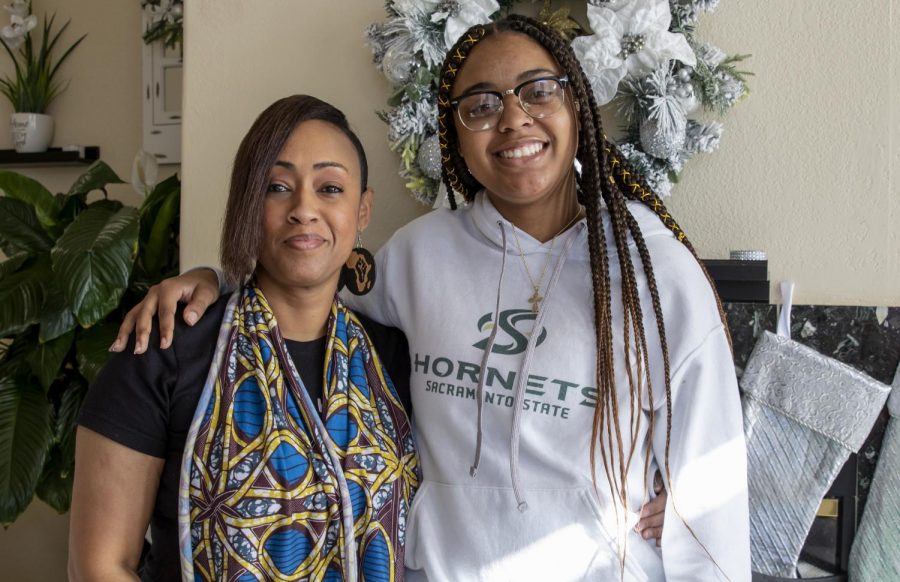
Sacramento community activist Jamilia Land keeps her phone on at all times to assist families affected by gun violence after she herself received a call on New Year’s Eve 2013 from her best friend in Oakland, screaming that her daughter-in-law was shot and needed to get to the hospital as soon as possible.
Land said she felt alone in that moment and wants to make sure other families do not feel the same in those moments of loss.
“I have lost five nephews, a niece and a daughter-in-law [to gun violence],” Land said. “I’ve been surrounded by guns and gun violence all my life. At 14 years old, I saw a close family friend being shot point blank in the chest with a 12-gauge shotgun while I was coming out of the corner liquor store.”
Land, an Oakland native, is what some would call a local activist in Sacramento and self-proclaimed humanitarian who helps families that have been affected by police-involved shootings or community-involved shootings with her program, the Anti-violence, Safety and Accountability Project.
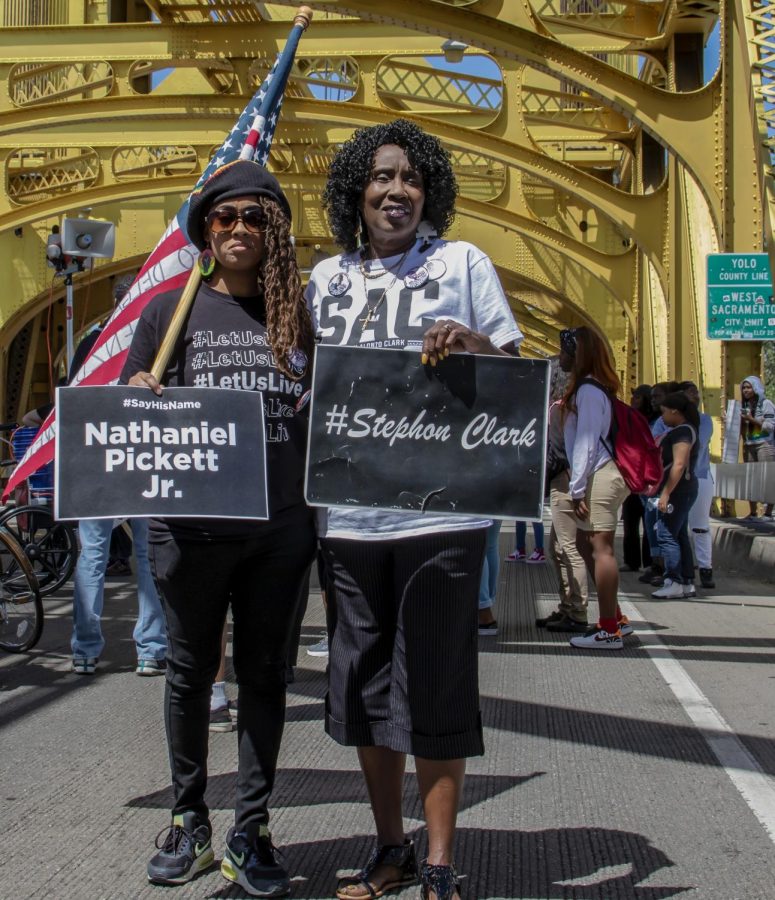
Land started ASAP a year ago, but said she has been around activism and working in her community since she was 7 years old. Land’s parents were members of the Black Panther Party, a revolutionary group founded in 1966 by Huey Newton and Bobby Seale that challenged police brutality against the Black community through armed self-defense in Oakland and other cities, according to the National Archives on the Black Panther Party.
Homicides and gun violence have increased in Sacramento over the last year. Just in the last month Land has held vigils and press conferences for two separate families who lost loved ones to gun violence. Since Land started ASAP she said she has helped approximately 18-20 families affected by either police-involved or community-involved gun violence.
ShotSpotter is a gunshot detection system that recognizes shots discharged from firearms every night in Sacramento, according to Sacramento Police Chief Daniel Hahn. He said ShotSpotter has detected a 13.3% rise in guns being fired. According to a crime statistics report by the City of Sacramento there was a 31.5% increase in the number of victims shot from 2019 to 2020.
In 2020, overall crime in Sacramento is down 11.6%, but murder is up 33.3%, according to an email from Hahn. In the same email Hahn said there were 43 reported homicides in Sacramento this year, as of Dec. 11, compared to 34 total homicides in 2019. Aggravated assault, including shootings, domestic violence and child abuse, is up by 22.8%.
Recently, Land has been a spokesperson for the family of Michael Wright, who was shot and killed Nov. 4 by police officers, as well as the spokesperson for the family of 19-year-old Dewayne James Jr. and 17-year-old Sa’Quan Reed-James who were shot and killed at Arden Fair Mall on Black Friday.
She held a press conference and candlelight vigil, arranged a meeting with Mayor Darrell Steinberg to speak with the family and helped to get the James brothers back to their hometown in Louisiana to be buried.
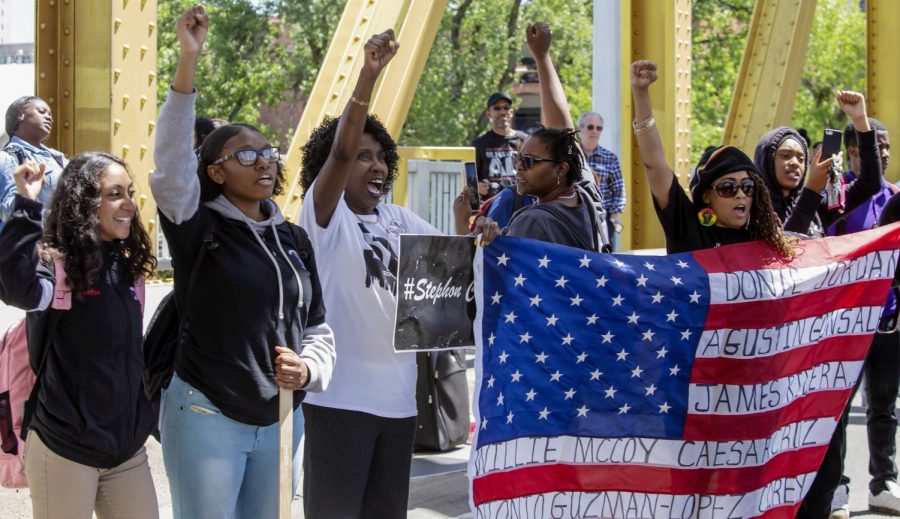
Land’s daughter Jaysa Harrison, 18-year-old Sacramento State computer science major, said she has experienced so much gun violence and death in her life that it has made her become numb. Despite this, Harrison said everytime she hears of another gun violence victim it forces her to relive her personal experiences.
Land said it is hard to watch your children suffer with depression and anxiety.
“Jaysa doesn’t leave the house unless she has to go to the store or something for school,” Land said.
Land explained that Harrison is afraid of other youth because Harrison comes from a different background and does not act like a lot of her peers.
“She’s not going anywhere with anybody because she’s afraid [of the world we live in]. Imagine living your life like that as an 18-year-old kid who is supposed to be in their prime.”
Land described Jaysa as an “old soul” who traveled across the country at the age of 5 by herself to meet up with her father, who is currently the special assistant to the Cincinnati Reds baseball team. Land said Harrison has never been into social media, parties or drugs and maintained a 4.0 GPA her entire high school duration and graduated as valedictorian and just finished her first semester at Sac State, taking 17 units, with a 4.0.
“She has always been studious,” Land said via text message. “She has accomplished all that while battling an auto-immune disease that has hospitalized her several times.”
Harrison reflected on how society views her mother as an activist and not as a person who has gone through trauma too.
“Earlier this year, her father, my grandfather, passed away and she was still out helping people through their grief while still grieving on her own,” Harrison said. “A lot of people forget that she’s a person, too.”
Land said her self-care and therapy is being there for other people because in helping them, she helps herself.
“I have so much pain inside, that if I don’t do something positive and constructive with it, it will consume me,” Land said.
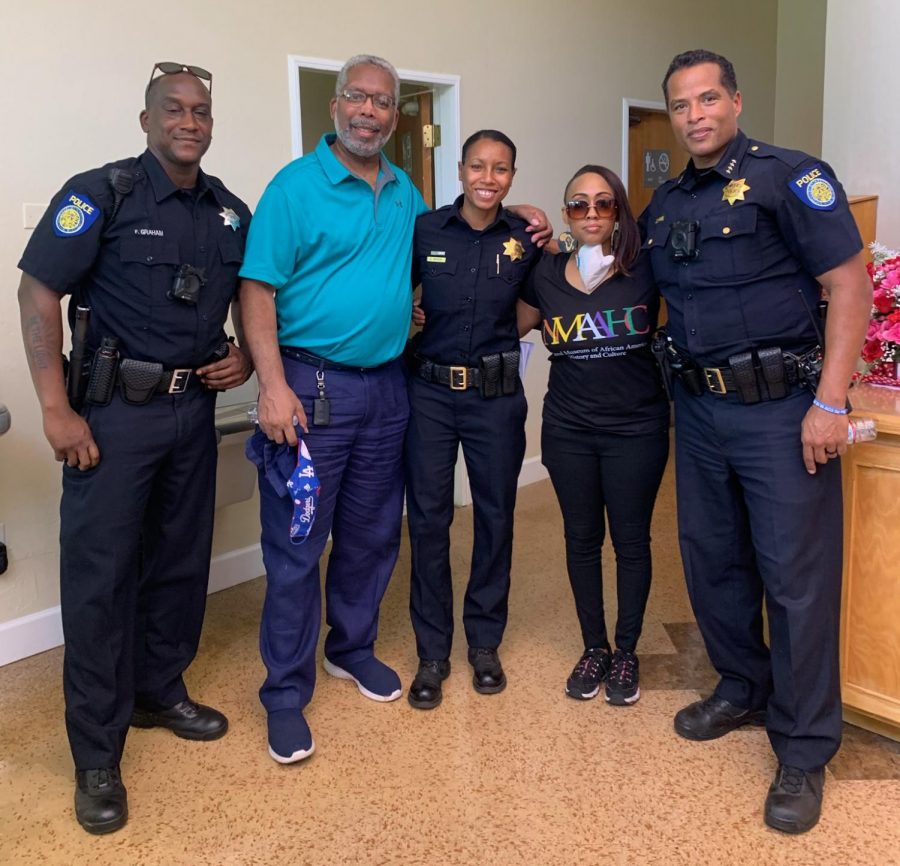
Recently, Land and Hahn worked together after the death of George Floyd. Hahn said after seeing a photo of police officers walking with the community he reached out to community leaders like Land. One week after the protests started in Sacramento, they both were a part of the Walk for Solidarity that started at the Oak Park Community Center and ended at the Shiloh Baptist Church. Although Land, Harrison and Hahn believe education is the key to help reduce gun violence, they all envision a different type of education to be used.
A Sac State alumnus, Hahn said going to school and getting a degree helps reduce crime rates and build communities up. Hahn said he would like to see the education system equally funded across the board, so schools like Rocklin and Grant High Schools have the same opportunities.
Land said while she would like to get rid of guns entirely, she acknowledges that is not realistic. She said she believes gun education and safety is needed to reduce accidental shootings from mishandling weapons and to avoid situations like her 4-year-old nephew, who found a loaded gun underneath a pillow and accidentally shot himself in the head but survived. She suggested either going into schools or the community and teaching children on how to properly handle guns.
Harrison said families that have been affected by gun violence should tell their story to a wide audience so people become informed.
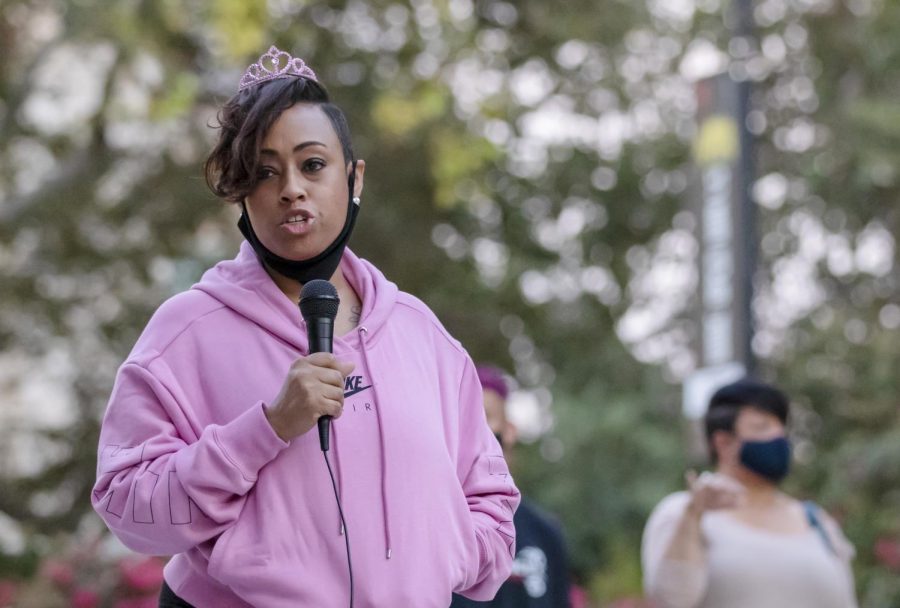
Land said that honest conversations on gun safety in the Black community, especially with children, are a great starting point.
Land said one stark difference she sees compared to the Black community is that people in the white community are taught to handle guns properly. Land said that Black children are mostly exposed to guns through movies or videos and see them as cool but are not taught what they are capable of.
Harrison said something needs to change with how accessible guns are because once they are brought into the community they can be passed to other people and end up in the hands of the youth who are not taught how to handle guns properly.
“We need the leaders of the communities to actually go into the communities and help because we can’t do it on our own,” Harrison said. “We also have to have better education on it [gun safety]. We have to start talking about them [gun violence-related deaths] younger because it’s young kids killing other young kids.”
Both Land and Hahn talked about ways to reduce gun and police involved violence and discussed their views on the defunding of the police that can be heard at protests. “Defund the police” is a rallying cry from the public to take some of the financial resources that law enforcement receive and redirect it into community programs or into the communities that are impacted by this type of violence.
“It’s never a race issue,” Harrison said. “It’s not a power issue. It is a people issue. That’s what it is, because at the end of the day, we just don’t know what it is to be genuine people anymore and to feel like you can take somebody’s life because you feel you’re more in power than they are just isn’t right. But it has nothing to do with them being policemen.”
Land and Harrison have different views on this topic. Even though Land and Hahn are friends, Land said that does not color her view of police officers.
“Defunding the police is not going to make them kill us any less,” Land said. “We have to be realistic about that. At the end of the day, it’s not the funding that’s killing. It’s the law enforcement officers themselves.”
Some people suggest tearing down law enforcement and creating a new policing system because law enforcement has a history of racism.

“Law enforcement does have a history in racism,” Hahn said. “Every single thing in this country has a history of racism, so it’s true what they say. I just disagree on what to do about it.”
Any real long-term solutions to gun violence and police-involved violence will take time, planning and collaboration, according to Hahn.
“So if we go down the line of defunding the police, who’s going to actually be there to help get these guns off of the streets?” Land asked. “Then there is the flip side of the conversation, where you hear in the communities, ‘We just need additional funding and we’ll police ourselves.’ Well, do we need that funding to police ourselves or can we start that right now?”
With no single concrete solution agreed on by the masses, Land and Hahn are taking steps to help reduce gun violence in their communities. They are educating others on gun safety, telling their stories and encouraging young people to go to college.
“I caution people don’t be so quick to jump on one side or the other,” Land said. “This is not a one-way conversation. This is a multifaceted issue that we have to be able to look at and approach in a sensible manner. And when you have extremes on both ends of the aisle we’re never going to get anywhere.”
Additional reporting by Mercy Sosa
SPOTLIGHT PODCAST EXTRA: Sac State Student shares personal experiences with gun violence in speech
Sacramento State student and daughter of activist Jamilia Land, Jaysa Harrison, gave a speech to her public speaking class about gun violence, her personal experience with it and how to prevent it. Listen to Harrison’s speech in The State Hornet’s Spotlight Extra podcast:

